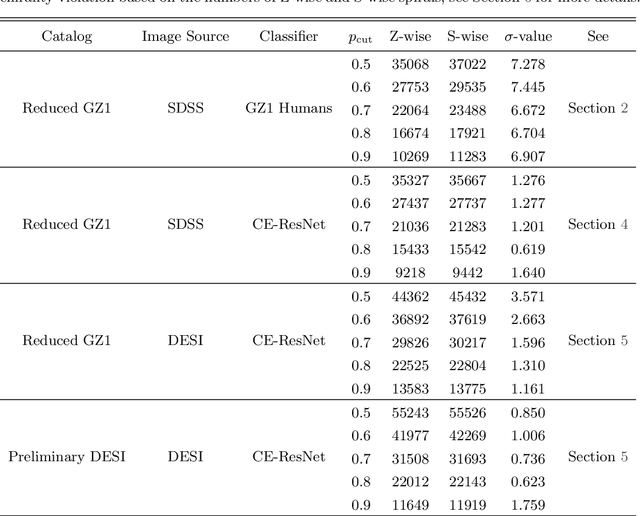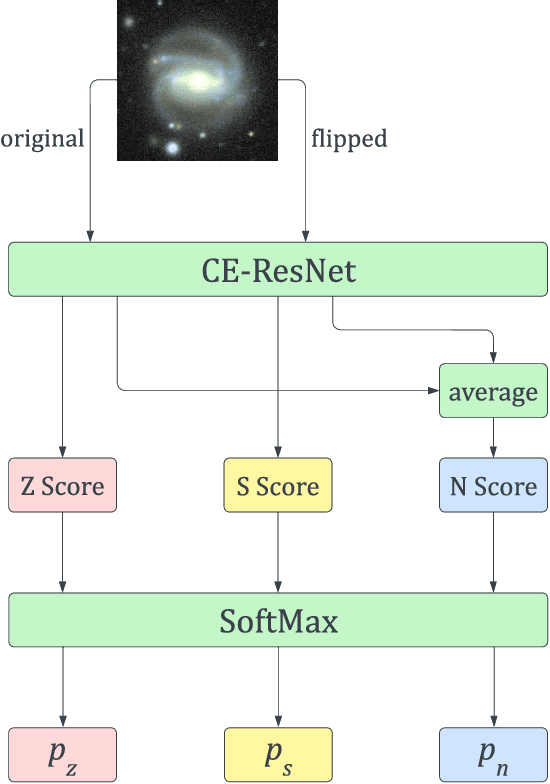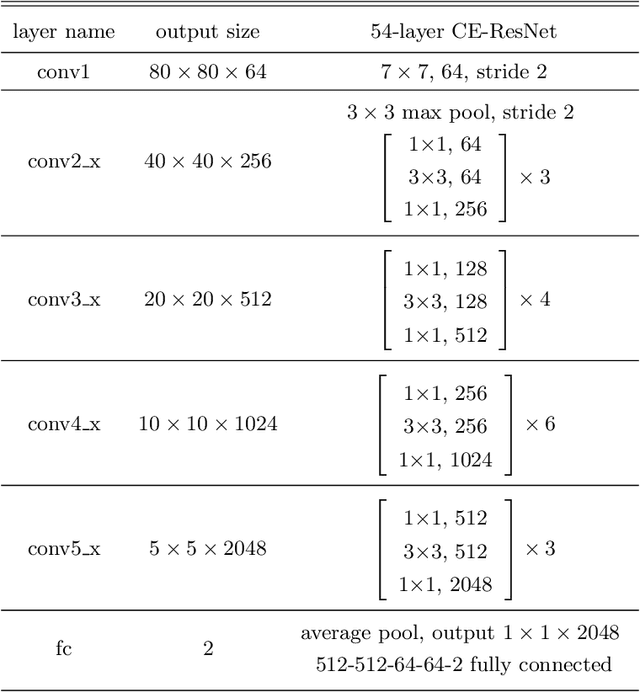Hong-Ming Zhu
Galaxy Spin Classification I: Z-wise vs S-wise Spirals With Chirality Equivariant Residual Network
Oct 09, 2022



Abstract:The angular momentum of galaxies (galaxy spin) contains rich information about the initial condition of the Universe, yet it is challenging to efficiently measure the spin direction for the tremendous amount of galaxies that are being mapped by the ongoing and forthcoming cosmological surveys. We present a machine learning based classifier for the Z-wise vs S-wise spirals, which can help to break the degeneracy in the galaxy spin direction measurement. The proposed Chirality Equivariant Residual Network (CE-ResNet) is manifestly equivariant under a reflection of the input image, which guarantees that there is no inherent asymmetry between the Z-wise and S-wise probability estimators. We train the model with Sloan Digital Sky Survey (SDSS) images, with the training labels given by the Galaxy Zoo 1 (GZ1) project. A combination of data augmentation tricks are used during the training, making the model more robust to be applied to other surveys. We find a $\sim\!30\%$ increase of both types of spirals when Dark Energy Spectroscopic Instrument (DESI) images are used for classification, due to the better imaging quality of DESI. We verify that the $\sim\!7\sigma$ difference between the numbers of Z-wise and S-wise spirals is due to human bias, since the discrepancy drops to $<\!1.8\sigma$ with our CE-ResNet classification results. We discuss the potential systematics that are relevant to the future cosmological applications.
 Add to Chrome
Add to Chrome Add to Firefox
Add to Firefox Add to Edge
Add to Edge